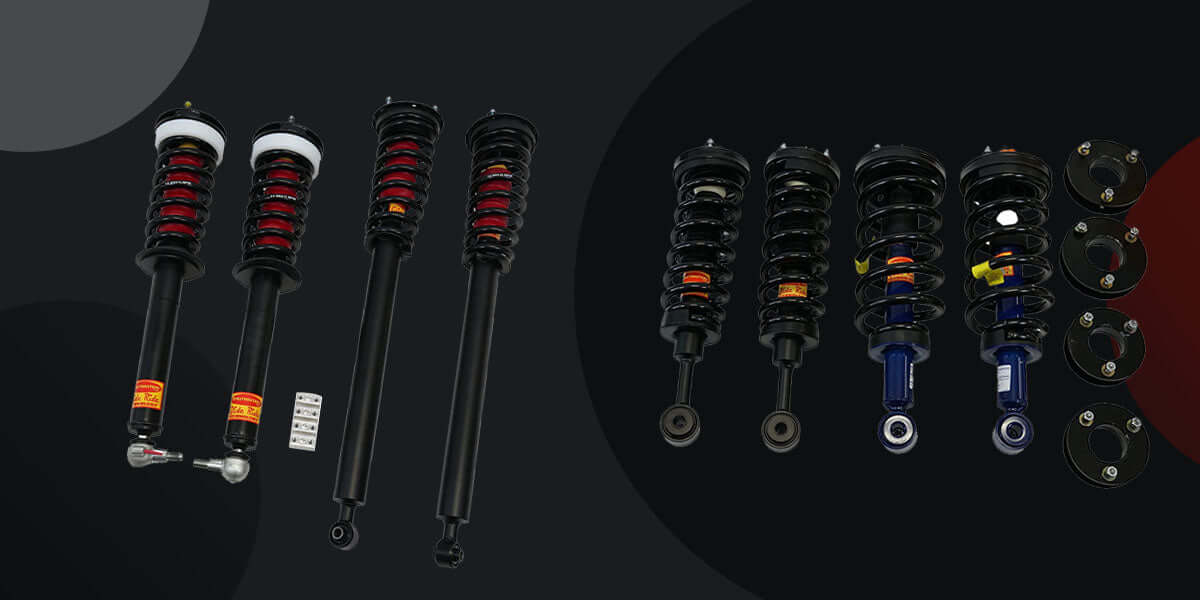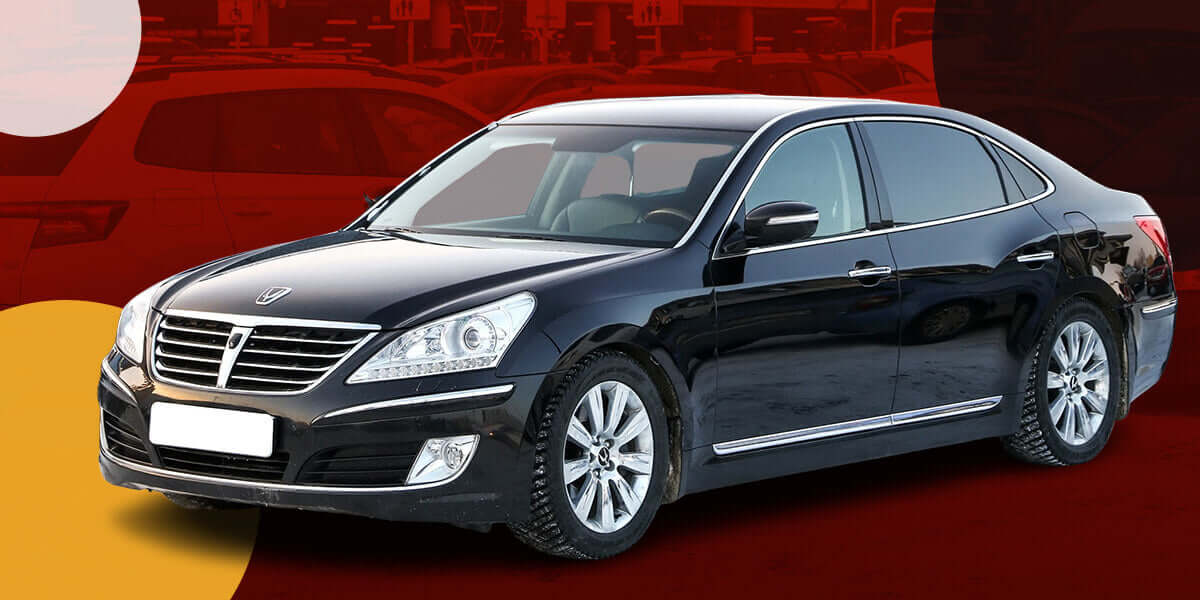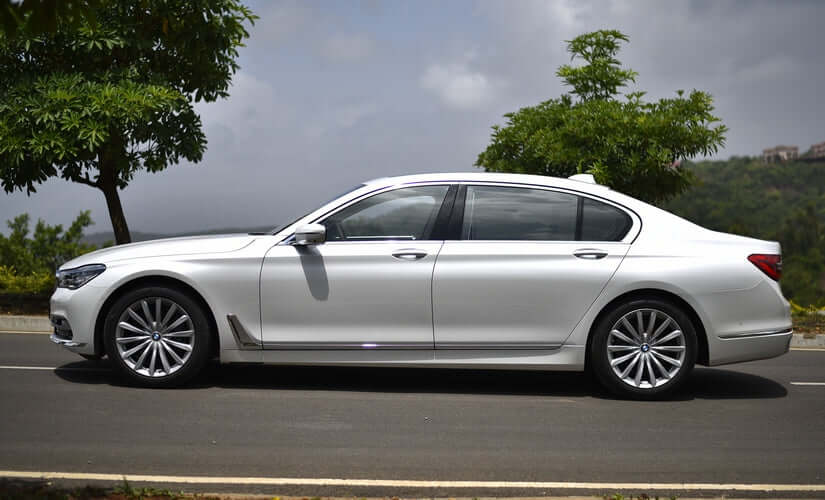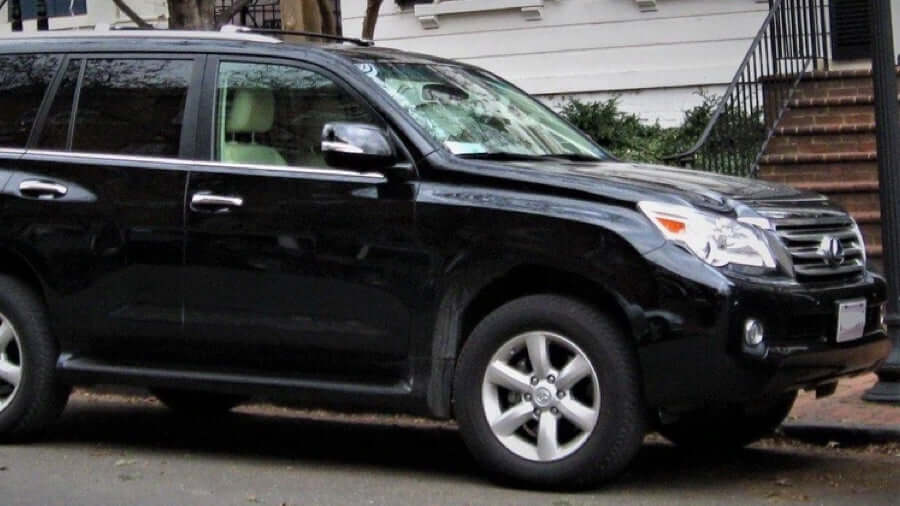The debate between hydraulic suspension vs. air suspension has been a main talking point for automotive experts for years. These systems are popular in OEM suspensions for their ability to deliver great performance and comfort.
Both offer a ton of advantages in vehicle performance, but which is better? There are many questions about these systems and how they work. To learn more about both, check out our hydraulic suspension vs. air suspension kit comparison below.
What Is a Hydraulic Suspension?
Hydraulic suspension systems utilize hydraulic fluids and four independent dampers. While operating your vehicle, each damper can depressurize and pressurize with minimal controls, allowing you to move up or down as much as you'd like.
Rather than using springs, this system uses compressed gas and oil to absorb forces on the road. When you go over a bump, the tire air and synthetic rubber absorb some force. Much of the force moves to the wheel, transmits to the frame, then moves to the driver and passenger.
The wheel action pumps oil from one chamber to another through a damper valve, and each chamber has a diaphragm. The pumped fluid generates a force that collides and rebounds against the compressed gas inside the diaphragm. The rebound pushes the oil back into the first chamber, forcing your wheel to grip the ground.
What Is an Air Suspension?
Air suspensions are popular in both OEM applications as well as in aftermarket modification kits. These systems include mounts, fittings and air springs. These systems operate similarly to hydraulics but require air and air springs to work.
Air springs allow your vehicle to raise its suspension by inflating the springs and lower your vehicle by deflating them. Active air suspensions adjust automatically to adapt to road conditions. Some systems even allow you to adjust the ride height to meet your specific needs.
Air suspensions replace traditional struts and shocks with air shocks, allowing for a more adjustable ride. These systems have an air tank, air struts, air lines, an air compressor and a manifold.
All of these components work to pressurize the air they draw in and send it to each strut. You can control these systems with wireless or wired controllers and smartphones, depending on your specific system.
Pros and Cons of Hydraulic Suspension Systems
Hydraulic suspension systems offer many benefits over electrical or mechanical systems. They can offer a ton of power within a small space and have an incredible response. Advantages of hydraulic suspension systems include:
- Firm ride: One of the best advantages of hydraulic systems is their ability to produce a firmer ride.
- Response: Hydraulic systems are responsive and react much faster than other systems.
- Customization: These systems offer customization, unlike other suspension systems. You can adjust specific shocks to specific heights because each one is independent.
- Extensive weight range: The fluid system makes these systems capable of supporting different weights, allowing you to adjust each ride to fit your needs.
- Easy maintenance: These systems have fewer moving parts, making them easy to care for and less costly in service repairs.
However, hydraulic suspension kits have their drawbacks. They're not the most cost-friendly choice and are more susceptible to expensive repairs from fluid leaks. Additionally, they don't produce the same smooth ride you can get from air systems. Here are the cons of hydraulic suspension systems:
- Leaks: It can be challenging to eliminate leaks in hydraulic systems. Leaks in hot areas can cause fires — if the lines burst, you could encounter serious injuries.
- Maintenance costs: Although you might not see signs of much wear or damage, you should plan to service your system at least once every year, and these costs can add up.
- Bumper ride: Hydraulic suspensions can provide a smoother ride than mechanical or electrical systems, but they don't compare to the smooth ride of an air suspension.
Pros and Cons of Air Suspension Systems
Air suspension systems yield a number of great benefits. Many auto manufacturers use air suspension systems because they offer a comfortable ride and features that enhance each ride. Some of the benefits of air suspension systems include the following:
- Smooth rides: An air suspension system offers a smoother ride than hydraulics and delivers better handling.
- Adjustability: You can adjust air suspension systems when needed. With the press of a button, you can give your vehicle a quick adjustment.
- Towing capabilities: Some systems contain parts that can increase the load capacity of a vehicle so you’ll be able to carry more. Plus, these parts work to compensate for the extra weight so your car stays level and drives smoothly.
- Less wear and tear on other parts: These systems relieve stress on other car components, so you can extend their life spans and ensure even rides every time.
- Affordability: Air suspension kits are more affordable than hydraulic suspension kits to maintain and replace.
But, like hydraulics, air suspensions have a few disadvantages. The most prominent is that an air suspension will require maintenance and repairs with time. However, these services won’t be as costly or extensive as the services needed to fix a hydraulic system. Here are the cons of air systems:
- Durability: These systems involve a lot of parts, and you'll need to service them over time. Some components will run under your vehicle, making them more susceptible to damage.
- System malfunctions: Small leaks could prevent the system from performing correctly. If the air line gets a hole or the compressor fails, your vehicle could be inoperable. However, hiring professionals to inspect and maintain these systems can reduce the chances of these malfunctions.
Finding the Right Suspension System
If you need to replace your OEM parts, deciding whether you want to replace part of your system or start fresh with an entirely new one is a big decision. Additionally, finding a replacement kit that suits your needs will save you time and stress in the long run.
Air suspension and hydraulics help vehicles deliver great handling, performance and capabilities, but deciding which is better is a matter of preference. Depending on your needs and the performance you want to experience, the answer could vary. Hydraulic kits are excellent if you want something more customizable. In comparison, air systems are ideal for providing smoother rides and enhancing towing performance.
However, there is another solution for your vehicle. When your OEM suspension isn't doing the job you want, you can find a better alternative from Strutmasters. Our conversion kits offer an affordable alternative to replacing OEM parts and empower drivers to create the rides they're looking for. Choosing a suspension system from us can save you time, money and stress while ensuring you love each ride.
Contact the Suspension Experts
Strutmasters specializes in active-to-passive suspension conversion kits. We've become a suspension system industry leader, and we continue to provide effective solutions at an affordable price. We're now a nationwide provider and have earned the title “The Suspension Experts.”
The suspension is a vital part of any vehicle. If you need more help deciding which suspension is best for you, contact one of our suspension experts online or give us a call at 888-906-3504.






